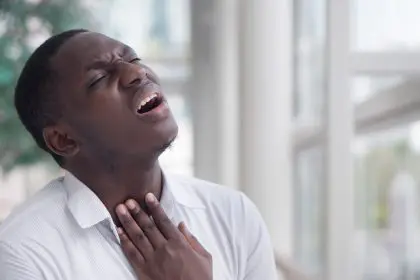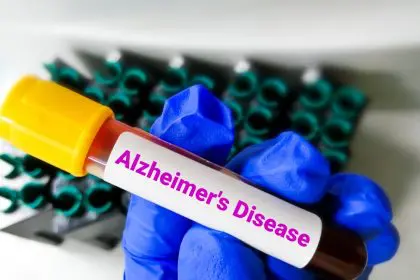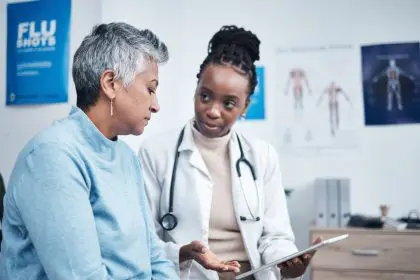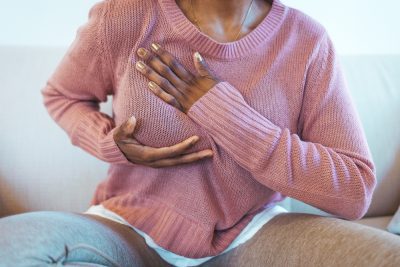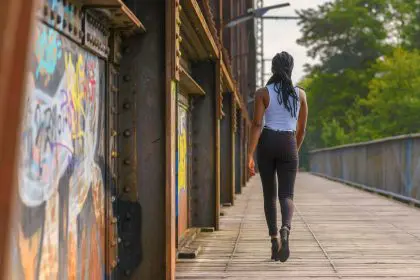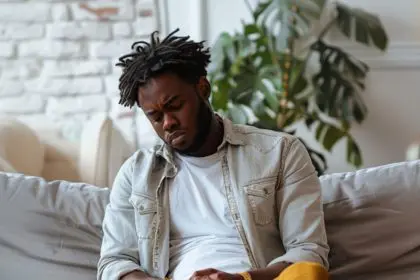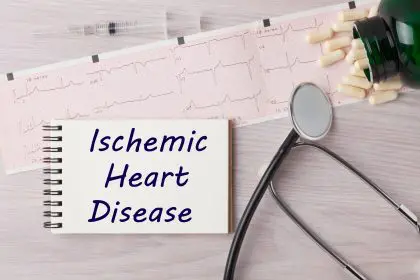In recognition of Breast Cancer Awareness Month, Rolling Out spoke with Daphne Myers, a breast cancer survivor turned advocate. Myers, diagnosed in April 2021, shares her personal journey and emphasizes the importance of early detection, especially for women of color. Her story highlights the need for increased awareness, better screening techniques, and year-round support for those affected by breast cancer.
[Editor’s note: This is a truncated transcribe of a longer video interview. Please see the video for the extended version. Some errors may occur.]
Can you share your experience with breast cancer?
I started as an advocate for breast cancer prior to my diagnosis in April 2021. It was right after I lost my mother. Breast cancer ran heavy on my paternal side of the family. I’d had a scare since I was eight. By the time they found breast cancer in my breast, that was my fifth biopsy. When I went for that biopsy, I thought, “Okay, this is something normal, give me my results and let me go home.” Unfortunately, this time they said they did find cancer.
At eight, I didn’t know what was going on. As I got older, my mom told me what I had experienced. At 17, they found another spot, and I had my second biopsy. It went on from there. They butchered me a lot through this process.
How do you stay hopeful while fighting breast cancer?
As women of color, breast cancer often isn’t detected as quickly. Mine was missed in a regular mammogram. Fortunately, my gynecologist said, “Something’s not right, I need you to get a 3D mammogram.” That’s when they found the breast cancer. Had she not been persistent, I would have been months in, and things could have been worse.
That’s why I advocate for awareness, especially for women of color. I have a daughter, and because I’m a survivor, she now has to be aware of her own risk. I also have a son, and many people don’t know that men can get breast cancer. I push for 3D mammograms to be a requirement for women of color because it’s so often missed.
Every year, I host an event called TaTas TuTus and Ties to support people going through the journey. It’s a lonely road when you’re diagnosed, and you have to go through treatments and make life-altering decisions. I’m involved with the Pink Foundation, founded by April Love. We’re working on the Pink Awards coming up, which will also bring awareness.
When I was diagnosed, the first thing I said was, “This is not a death sentence.” I made changes, like adjusting my diet and being mindful of my health. We’re survivors, not just those of us directly impacted, but also the family and friends who go through it with us.
What approaches to treatment have you found effective?
Early detection is key. I always tell people to get tested. It’s essential. Being part of the Pink Foundation, I’ve seen young women in college diagnosed with stage 3 breast cancer, largely because we aren’t getting checked regularly. You only need to go once a year unless you’ve been diagnosed, like me. I have to go every six months now.
I take a holistic approach but also consider Western medicine. Both need to work together. I’m big on green juices and being mindful of what I put in my body. These small changes help, and I always stress the importance of getting checked. We have to take care of our bodies because they’re the temples we live in.
What emotions come with beating breast cancer?
Myers: By the time you get through treatments, you become a warrior. Ringing that bell at the end of treatment is like a new beginning. Going through it, you feel like you’re the only one. But once you get through it, you feel like you’ve been given a second chance at life. It’s important to be a voice for others, especially pushing them to get checked. It doesn’t take much time, but it can make a huge difference.
I also want more men to get involved. Studies show that breast cancer in men often goes undetected because it’s not something society really acknowledges. Men need to be doing self-exams too. But when men go to the doctor, they’re often faced with forms that ask things like “How many pregnancies?” or “When was your last period?” We need to change the awareness around breast cancer for men as well.
What resources should people tap into during their breast cancer journey?
It’s shocking that we don’t have a cure yet. But breast cancer doesn’t just happen in October, and it doesn’t just affect women. We need to support people year-round. While I support large organizations, there are smaller ones really out there doing the work, holding hands, going to appointments, and providing financial assistance.
When I was going through this, those resources were critical. There are so many local organizations that provide real help. Some women need assistance getting to their doctor’s appointments, or they need help with their utility bills. It’s tough to go through treatments, take care of children, and manage life in general. If I could ask for anything, it’s more support for these smaller organizations and year-round awareness, not just during breast cancer awareness month.
How are you navigating conversations about breast cancer risk with your family?
We have to have those conversations. After my treatment, I was on the phone with family members, telling them to get checked, do self-exams, and talk to their doctors. Education is key. Whether it’s breast cancer, prostate cancer, or any type of cancer, we need to educate ourselves. My family has been hit hard by cancer on both sides, so these conversations are not hard anymore. They’re necessary.

